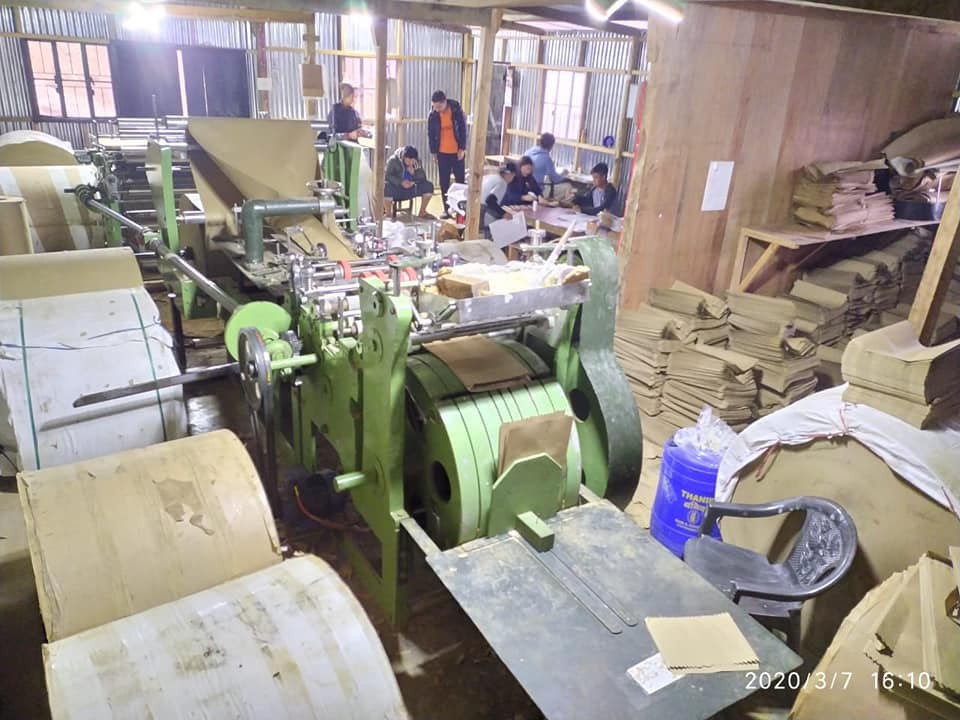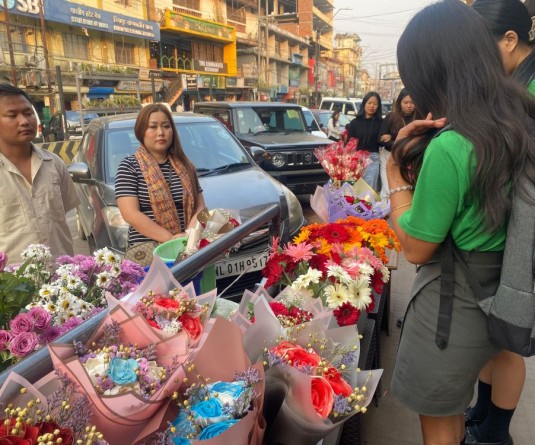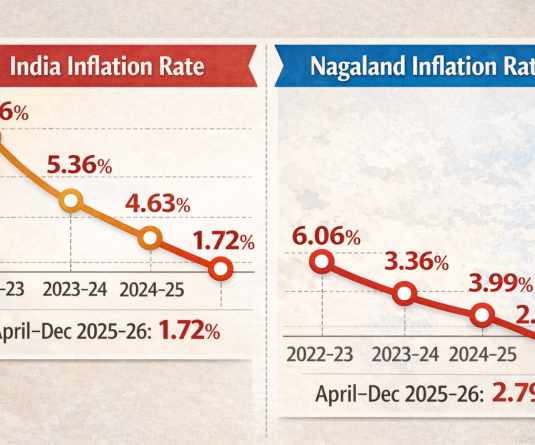Despite the ban, plastic use is flourishing , especially during the pandemic, according to Vitoulu Domeh. Following the decline in demand for paper bags, Domeh also had to downsize his employees from 10 to 7 and eventually to only 3 at present. (Photo Courtesy: Vitoulu Domeh)

Re-emergence of plastic use during pandemic affecting local paper bag business
Vishü Rita Krocha
Kohima | August 11
When Vitoulu Domeh ventured into manufacturing paper bags under the name ‘Domeh Paper Bag Enterprise’ along the national highway in New Reserve in the later part of 2019, the timing could not have been more perfect. The state government had just announced a total ban on all single-use plastic in Nagaland, and here was an enterprising young man who believes that paper bags are eco-friendly and contributes to saving nature from pollution.
“I have been concerned about the use of plastic from before but with the government notification, I also felt that it was a good opportunity and I started right away with my own savings, besides a loan and help from people to procure the machineries,” he told The Morung Express.
An investment of about 30 lakh was made by him and his partner, Thesü Domeh, for the paper bag manufacturing unit. When it formally took off on October 2, 2019, Domeh Paper Bag Enterprise was a thriving place. “Especially from January to March 2020, we were not able to meet all the demands,” Vitoulu Domeh highlighted.
However, following the total lockdown due to COVID-19 last year, he had to downsize his employees from 10 to 7 and eventually to only 3 at present. Since the onset of COVID-19, Vitoulu has been watching with dismay how plastic is flourishing in the market despite the ban.
“I started this with a hope and a vision, but the impact of COVID has been huge. Even with its harmful effects, plastic is cheaper and easier, and those who previously stopped using plastic also went back to using it again after COVID,” he lamented.
In this regard, he also stated that, “I had a certain hope that if the government is making a policy, it will also be implemented well, but there has been no restriction on their part and it has failed,” he pointed out.
Towards this end, he also added, “I want to request the administration to keep a check on it. It is not possible to completely ban plastic, but even with the rampant use of plastic right under their nose, the government is not doing anything about it. Maybe in some corners, the usage of plastic cannot be completely stopped, but it is big failure on the part of the government when it is being widely used in the open.”
He further asserted that to ban plastic, it needs the cooperation of everybody including shopkeepers and vendors, as well as the customers.
Recalling how at one point of time, they could not fulfill orders because there was too much demand, he shared, “From being able to sell 700 kgs of paper bags per day earlier, now I hardly sell 100 kgs in a month.” On an average, Domeh Paper Bag Enterprise is running on a loss of about 60,000 rupees monthly even as it has to cover the salaries of the employees, pay electricity bills and rent, etc.
Vitoulu Domeh, who is the eldest among 6 siblings, had been entrusted with responsibilities at a young age. As a student, he worked at a saw mill to pay for his admission fees to Class 11. He later underwent training on Aviation and Hospitality from Sky International Academy Guwahati during 2009 and subsequently worked with Indigo, IBM and HCL before he decided to return home to start something from the grassroot.
With a lot of raw materials lying unused for lack of order, he expressed hope that one day or the other, plastic ban will be implemented with all seriousness. “And hopefully, we will get back on track,” he added. With the majority of the population going back to using plastic, Domeh Paper Bag Enterprise currently fulfils orders mostly for weddings and few occasions.
“There is so much scope even for generating employment through this,” he pointed out while relating how during better days, women groups were employed for button folding and handle pasting. “Negligence is the main cause of plastic pollution. The best way to address plastic pollution is to change our mindset and habits with plastic usages. Plastic bags may be helpful but polluting the environment is shameful. Stop choking, let the mother earth breathe. Say No to Plastic and Yes to Paper Bags,” he had also advocated on social media.





